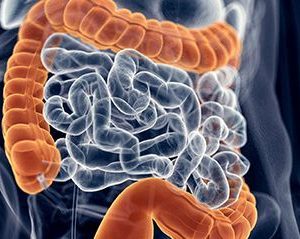- Recognizing the Signs of Hypothyroidism
- 10 Strategies to Overcome Insomnia
- Could Artificial Sweeteners Be Aging the Brain Faster?
- Techniques for Soothing Your Nervous System
- Does the Water in Your House Smell Funny? Here’s Why
- Can a Daily Dose of Apple Cider Vinegar Actually Aid Weight Loss?
- 6 Health Beverages That Can Actually Spike Your Blood Sugar
- Treatment Options for Social Anxiety Disorder
- Understanding the Connection Between Anxiety and Depression
- How Daily Prunes Can Influence Cholesterol and Inflammation
Relatives’ Colonoscopy Results Could Affect Your Colon Cancer Risk

Having close relatives with colon polyps — which can be precursors of cancer — could mean that you have a higher risk for colon cancer, researchers say.
Colon cancer is the second deadliest form of cancer in the world, according to the World Health Organization.
Being overweight and inactive increases the risk, but genetics also play a role, researchers in Sweden and Boston said in the new report.
For the study, the investigators analyzed data on more than 68,000 colon cancer patients in Sweden and a control group of nearly 334,000 people without the disease.
Just over 8% of the colon cancer patients had a sibling or parent with colon polyps (abnormal growths), compared with less than 6% of the control group. This shows that having a close relative with colon polyps is associated with a 40% increased risk of colon cancer, the researchers said.
The risk is even higher for certain people, the authors noted in a Karolinska Institute news release.
“The risk was double in people with at least two first-degree relatives with polyps or a first-degree relative who had a colorectal polyp diagnosed before the age of 60,” said study author Mingyang Song, a researcher at Harvard Medical School in Boston.
The report was published online May 4 in the BMJ.
Further research is needed to confirm these findings, another study author noted.
“If additional studies reveal a link between a family history of polyps and the risk of colorectal cancer, it is something to take into account in the screening recommendations, especially for younger adults,” said Jonas Ludvigsson, a professor of medical epidemiology and biostatistics at Karolinska Institute in Sweden.
Most people diagnosed with colon cancer are older than 65, but growing numbers of younger adults have been affected in recent years.
Colon polyps can be detected with colonoscopy screening. And the researchers believe these findings could influence screening policies.
If diagnosed and treated at an early stage, colon cancer patients are more likely to have good outcomes, the study authors said.
More information
The American Society of Colon & Rectal Surgeons has more on colon polyps.
SOURCE: Karolinska Institute, news release, May 4, 2021
Source: HealthDay
Copyright © 2026 HealthDay. All rights reserved.










